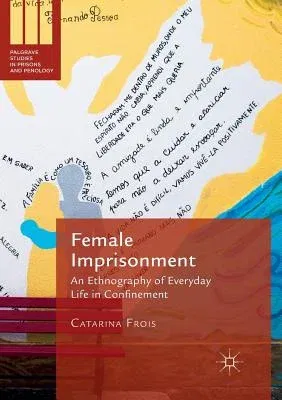Catarina Frois
(Author)Female Imprisonment: An Ethnography of Everyday Life in Confinement (Softcover Reprint of the Original 1st 2017)Paperback - Softcover Reprint of the Original 1st 2017, 4 June 2019

Qty
1
Turbo
Ships in 2 - 3 days
In Stock
Free Delivery
Cash on Delivery
15 Days
Free Returns
Secure Checkout
Part of Series
Palgrave Studies in Prisons and Penology
Print Length
231 pages
Language
English
Publisher
Palgrave MacMillan
Date Published
4 Jun 2019
ISBN-10
3319876147
ISBN-13
9783319876146
Description
Product Details
Author:
Book Edition:
Softcover Reprint of the Original 1st 2017
Book Format:
Paperback
Country of Origin:
NL
Date Published:
4 June 2019
Dimensions:
21.01 x
14.81 x
1.3 cm
ISBN-10:
3319876147
ISBN-13:
9783319876146
Language:
English
Location:
Cham
Pages:
231
Publisher:
Weight:
294.83 gm

